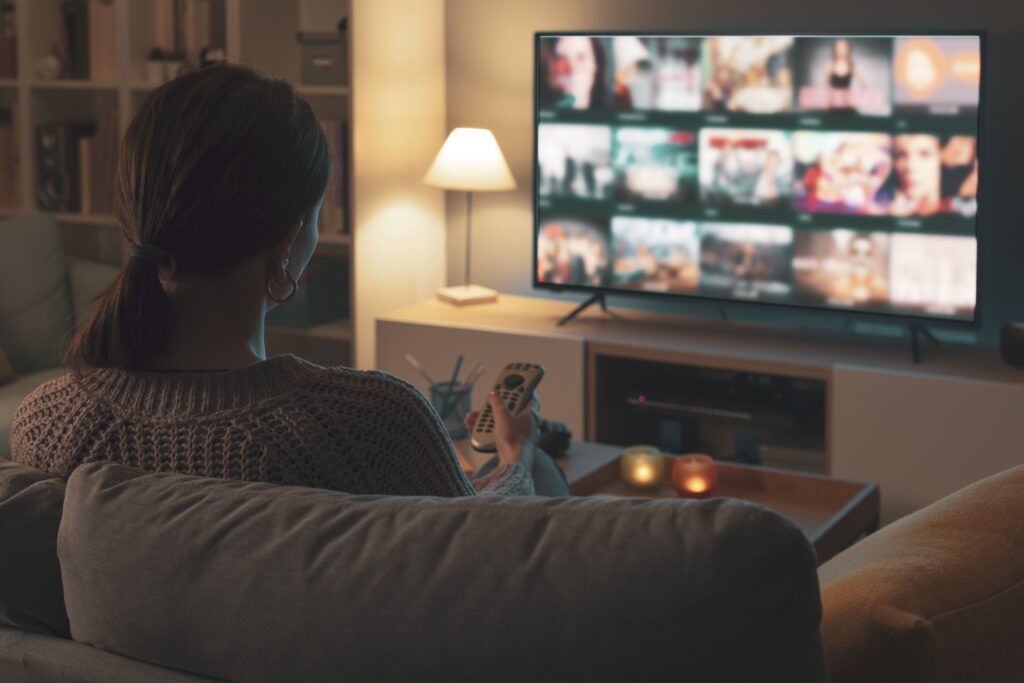When watching TV in the UK owning a TV Licence is a legal requirement. Watching live as broadcast TV like BBC 1 or BBC iPlayer without a TV Licence carries a fine of up to £1,000.00, but there are some circumstances whereby a TV Licence is not required. In this article we hope to clear up common myths and misconceptions surrounding TV Licences.

What is a TV Licence?
In the UK you need a TV Licence to be able to watch live TV, this is organised and administrated through the BBC owned TV Licensing website. The TV Licence is registered to an address and covers that residential property and the people that live in it for every device whether at home or out and about.
HMO’s and Student accommodation have slightly different rules. If you share the property and have a joint tenancy the home only needs one TV Licence. For Houses of Multiple Occupancy (HMOs) and student houses, a separate TV Licence is required for each tenancy unless the only device viewed is in a communal area and the house as a whole has a TV Licence. For students in halls, you will need a TV Licence to be able to watch TV in your room.
When staying in hotels and other short term holiday let accommodation, the TV Licence should be supplied by the host.
How much is a TV Licence?
Currently a TV licence costs £159.00 per year. You can pay all in one go or you can spread the cost over quarterly or monthly payments which are usually taken by direct debit or credit/debit card. View the TV Licensing website for the full list of ways to pay.
Do I need a TV Licence?
If you watch or record live TV, whether that’s through a subscription service like Sky, Now TV or Virgin Media, or via a Freeview box or aerial or through a streaming service. You will need to buy a TV Licence. There are, however, exceptions, concessions and discounts available.
First Concessions and discounts. If you are aged 74 and over and you, or your partner living at the same address receive Pension Credit, you could be entitled to a free TV Licence. If you live in a care home or sheltered accommodation you might be eligible to pay a discounted rate of £7.50. If you are blind or have a severe vision impairment you can apply for a 50% discount making your TV Licence £79.50. If you watch TV on a black and white television then your annual rate is £53.50.
Now Exceptions. According to the TV Licensing website FAQs, “You don’t need a TV Licence if you never watch live on any channel, TV service or streaming service, or use BBC iPlayer*. On any device. *A licence is not needed to watch S4C programmes on demand.”
That statement is a little misleading, as you might think you don’t need a TV Licence when watching a delayed channel like ITV+1 for example, or recording and watching TV at a later date time. Watching +1, +2 and +24 channels and recording TV channels and watching them later all require a TV Licence. Watching TV via Youtube also requires a TV licence, even if you subscribe to Youtube Premium. Netflix however, does not require a TV Licence, the TV Licensing website states: “You don’t need a TV Licence to watch on demand programmes on Netflix.” What about Amazon Prime and Disney? The website states: “If you’re watching TV showing live on Amazon Prime, you need to be covered by a TV Licence. You don’t need a TV Licence if you’re only watching on demand programmes on Amazon Prime.” And for Disney the TV Licensing website says: “You don’t need a TV Licence to watch on demand programmes on Disney Plus.”
In summary then, regardless of the device or method of viewing, if you only watch Netflix, Disney and on demand programmes on Amazon Prime, you do not need a TV Licence, for all other instances the TV Licence fee is payable.






